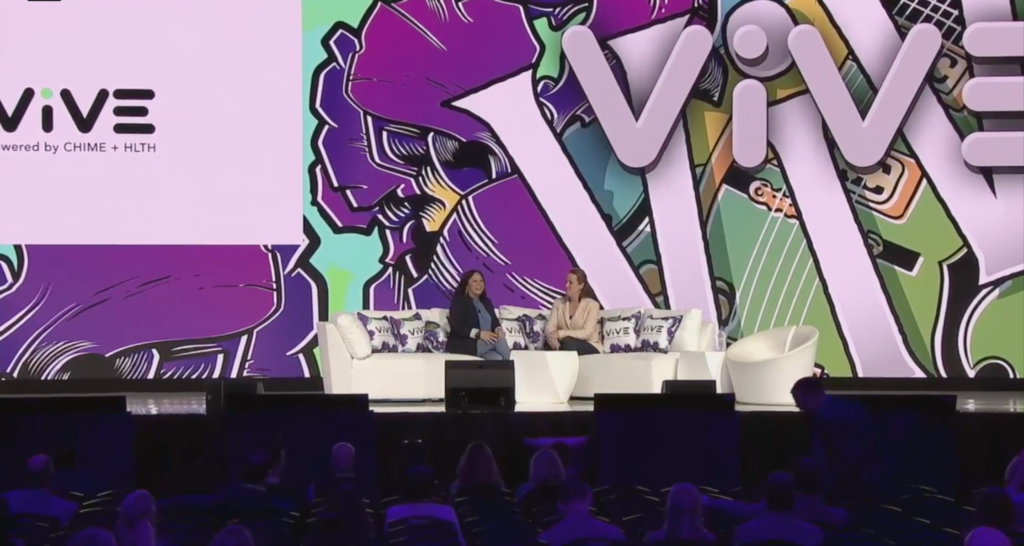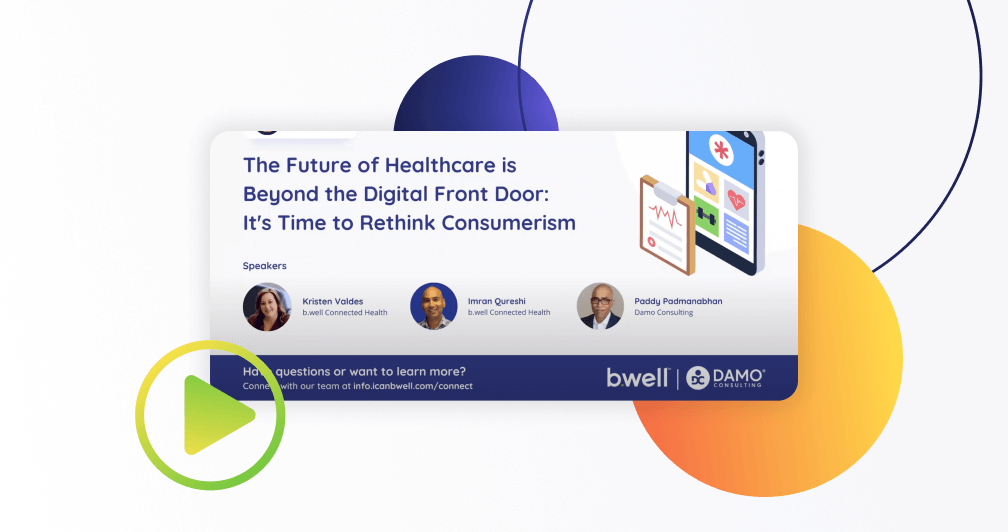A promising transformation is underway, aiming to change how health plans serve consumers while enhancing their experiences. Kristen Valdes, CEO and Founder of b.well Connected Health, underscored this during a session at AHIP’s 2023 Digital Consumer Experience conference, focusing on the promise and future impact of a Longitudinal Health Record (LHR).
Longitudinal Health Record: A Solution to a Fragmented System
With its disparate data sources, the present healthcare system paints a fragmented image of consumers. Crucial consumer data emerges from various sources, including health and wellness programs, pharmacies, wearables, social determinants, and labs. Yet, this data remains scattered, living within the many systems it’s collected in for both the consumer and healthcare organizations.
A Longitudinal Health Record introduces a unified, comprehensive, and streamlined rendition of a consumer’s health journey. However, this solution hinges on advanced protocol engines that guide consumers to proactively apt care, significantly enhancing outcomes. Furthermore, a partnership mindset is imperative between providers and payers to unify the fragmented pieces to form a cohesive representation of all health data.
Let’s Try a New Approach
Typically, providers yearn for quicker payments, while payers advocate for greater risk-sharing. A fresh approach suggests bypassing this stalemate. Instead of ongoing negotiations between payer and provider, the emphasis could shift to a “consumer-managed ecosystem,” a term b.well coined to describe an environment where the consumer controls their data access.
Given the recent regulations that empower consumers to access their comprehensive health data and the steep fines for non-compliance, the narrative shifts toward consumer shoppability and transparency. Integrating solutions into existing platforms allows consumers to assemble their Longitudinal Health Record, gleaning insights without endless back-and-forths. Notably, regulatory changes have been geared towards empowering consumers, allowing them access to their health details via open APIs and any trusted third-party app. In this realm, as Valdes mentioned, b.well Connected Health stands out with its extensive connected APIs.
Moving in the Right Direction with a Longitudinal Health Record
The industry’s recent embrace of FHIR (Fast Healthcare Interoperability Resources) for data interoperability moves us towards a universally endorsed data exchange model. This ultimate vision is championed by major tech stakeholders in the widespread adoption of FHIR, facilitating real-time data transactions and streamlining clinical and financial responsibilities.
FHIR’s impact transcends mere data sharing. It addresses the rising issue of point-solution fatigue. The proliferation of digital health apps and the ease of integration via an “app store” methodology could redefine healthcare. This expedites processes and ensures seamless integration of digital health apps, fostering a unified healthcare ecosystem.
However, a Longitudinal Health Record’s importance isn’t solely based on data aggregation. It’s also about real-time access. Health plans can swiftly get insights into consumers’ health status, negating the wait for vital updates about a consumer’s health or care plan adherence.
Shared Data Through Consent
Often, healthcare decisions aren’t solely between a consumer and a provider. In families, a primary decision-maker, a female in more than 75% of cases, according to the Family Caregiver Alliance, makes choices for the family, kids, and elderly parents. Accessing this data is vital. Although the Health Insurance Portability and Accountability Act (HIPAA) can be a barrier, some HIPAA rights can be relaxed with the right consent frameworks, enabling tailored communications for enhanced care outcomes.
With consumers being empowered to manage their data through the fourth permitted use case, consumer consent, health plans can view historical records, streamlining risk adjustments from the get-go, and therefore creating the possibility for better outcomes for each consumer.
Fighting the Illusion of Personalization
Beyond addressing interoperability’s technicalities, the consumer experience needs refining. A consumer’s experience can pivot when they witness health plans’ proactive steps, similar to how an Instagram feed might remind you of a desired purchase.
For optimal outcomes, payers should partner with top-tier providers to explore their Application Program Interfaces (APIs). The aim is not just efficient scheduling. Often, unclear provider directories exacerbate issues. A consumer seeking a “headache doctor” might be erroneously directed to unavailable neurologists, causing frustration and lost time.
True personalization isn’t merely appending a consumer’s name to an email. It’s about proactive engagement, like timely reminders for primary care appointments or medication refills. Longitudinal Health Record systems, employing clinical quality language and open standards, bolster algorithms that communicate instantly with consumers. This reduces the manual intervention from medical staff, saving precious time and resources.
In an era where data drives decision-making, Longitudinal Health Records promise to consolidate fragmented health data and transform the healthcare experience. By placing consumers at the center and ensuring seamless integration and accessibility, the industry is taking strides toward genuine personalization and proactive care.
b.well Connected Health is championing a future where consumers are passive receivers and active participants in their health journeys. If you’re interested in learning more about how b.well can improve your approach to healthcare and want to be a part of this transformation, we invite you to connect with us.



